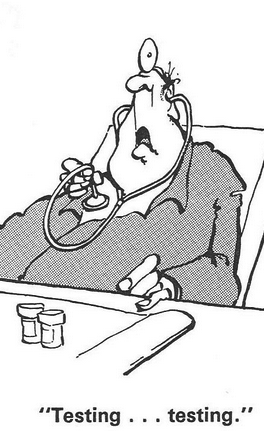Minnesota APRN Coalition | Opposition to H.F.2803

Minnesota APRN supporting access, improving healthcare | Opposition to H.F.2803
I am a Clinical Nurse specialist in Psychiatric and Mental Health. I am a dual certified in Child / Adolescent as well as Adult Mental Health, and see people ages 4 and up. I work at the Urgent Care for Adult Mental Health where we see people who are homeless, who have no insurance, who frequently have chronic mental health problems, as many times also have chemical addiction issues.
These are people with very limited resources and minimal access to quality and timely mental health care. I also have a private practice and carry a caseload of over 300 clients at this time.
The current bill has be greatly concerned for a variety of reasons.
- There is a significant shortage of qualified mental health providers, and this problem exists in both the rural and metro areas.
- There are wait times of several months to get in to see a psychiatrist, and many of the psychiatrists do not take insurance.
- The research has shown that psychiatrists in the U.S. are less likely to accept private insurance in 2005 and 2006, but that fell to 55% in 2009 and 2010, compared to almost 90% of doctors in other specialties. In 2009 and 2010, 55% of psychiatrists accepted Medicaid. Among other specialists, 86% accepted Medicare and 73% accepted Medicaid.
This in itself is creating a world of have and have nots as many people do not have the financial resources to pay the psychiatrists upfront. I see people with a variety of mental health diagnosis and insurance coverage, such as Medicare and Medicaid.
- If the psychiatrists are not willing to take insurance, especially Medicare and Medicaid, who is there to serve this population of people with mental health illness, and sad to say, many of these people are the ones with chronic and serious mental health issues.
The APRN’s are frequently in the front lines of providing quality and compassionate care to these individuals, but the current barriers to practice are chasing qualified people out of the state as they seek employment in states that do not have these barriers.
The requirement of a written practice agreement is onerous and a significant barrier to practice. This is especially noted when trying to find a physician who will enter in a collaborative practice arrangement. The last time this happened to me, it took me over 3 months to find someone who would collaborate with me. My story is not a singular one as several of my colleagues have asked me if I know of anyone who might be willing to enter into a practice agreement, or if my collaborating physician might be willing to sign and agreement with them as well. The difficulty in finding a collaborating physician significantly handicaps the APRN from practice. The most common reason the physicians give for not engaging in a practice agreement is their perceptions of the time that it would involve, and their concerns about liability.
They have been advised by their employers or malpractice companies to not engage in a collaborative practice agreement.
Removal of the need for a practice agreement would remove this perceived risk for them, and allow more APRN’s to serve these people with mental health issues.
Another facet of the collaborative practice agreement is that I am required to pay for the consultation time with the psychiatrist. My first collaborating psychiatrist charged me 10% of my income as a condition for his signature on a piece of paper. Again, this is not a singular incident as I know of several psych APRN’s who have to pay fees for the signature on a piece of paper that gets shoved in a drawer and not looked at again for a year.
This bill would make it very difficult for me to appropriately treat many of my clients who have ADHD, as the meds used to treat this condition are frequently the Schedule 2 drugs. There are a very limited number of mental health prescribers for children as it is, and I am one of them. If I were not able to prescribe Schedule 2 medications, who would the children go and see for treatment?
But what is worrisome for me with respect to requirement of the practice agreement is that if my collaborating psychiatrist should die abruptly of have some other incident happen, I would not be able to write a single prescription for medications for any of my clients. Believe me when I say that I pray for the health and welfare of my collaborating psychiatrists as if something were to happen to him, I would have over 300 client who would instantly be without a provider and could no longer get their meds as I would no longer be allowed to prescribe their meds.
- Where would these people go-especially when there is a shortage of mental health providers already, and the primary doctors have stared to refuse to prescribe psychiatric medications for people? Can you guarantee me under the proposed legislation that I would be able to find another collaborating physician in a day or so?
- Can you guarantee the clients I see that they could gain timely access to another provider who will prescribe their meds?
- Can you guarantee to the public that they could see another mental health provider before their meds run out?
Thank you for your time and careful consideration to this bill. The proposed bill is going to drive qualified APRN’s from the state of Minnesota as it further enhances the current barriers to practice and it further limits access to care. Please consider carefully the needs of the people with mental health issues and their families in your decision.
photo reprint from sundayscomicdept.blogspot.com


